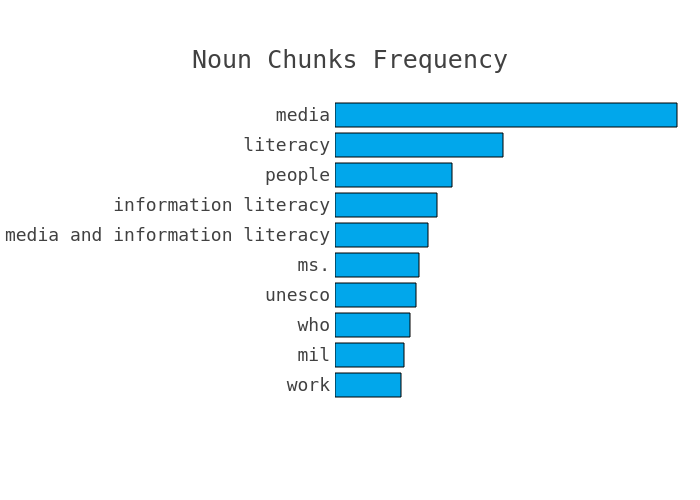Framework- media and information literacy in digital spaces
9 Dec 2021 15:50h - 17:20h
Event report
What if we all govern the internet? This is the title of a study UNESCO published in 2017. It is also the question asked at the beginning of this session. Focused on advancing international and multistakeholder efforts to promote media information literacy online and in particular through digital platforms, this session’s main goal is to ensure that all learners acquire the knowledge and skills needed to promote sustainable development, including, among others, through education for sustainable development and sustainable lifestyles, human rights, gender equality, promotion of a culture of peace and non-violence, global citizenship, and appreciation of cultural diversity and the contribution of culture to sustainable development.In recent years, the phenomenon of disinfodemic has arisen fuelled by either the lack of access to information and media or information literacy competence to critically evaluate information, more so during the current health crisis that has created a state of general isolation and underscored the unprecedented necessity of and dependence on the digital sphere of information, social networks, and the internet in general. Media and information literacy is essential to convert users into active and informed agents when using digital services, where everyone is involved and everyone is empowered to contribute to the development and the use of the internet and other digital technologies.
Ms Vera Jourova (Vice-President and Commissioner, the European Commission) stated that today, in this era of the pandemic, we see more than before how important media literacy is due to such an avalanche of misinformation and disinformation at an unprecedented scale. According to her, it is either about having trustworthy information or being overloaded with disinformation that can really cause great harm to us as individuals, but also to society. The way the European Commission tackles this issue is coregulation. What this essentially means is that there is the Digital Services Act, which is a legally binding set of rules for the online sphere, and a Code of Practice on Disinformation, posing as a mitigating factor that should reduce the level of harm caused by disinformation.
Ms Sinead McSweeney (Global Vice-President of Public Policy, Twitter) expressed that Twitter champions the free flow of information on people’s right to expression online. However, since the open internet has effectively put a user-friendly tap on the world’s reservoir of information there is so much information available now on-demand and people of all ages are left trying to parse between what is credible and what is not. In this regard, the capacity to consume, digest, and understand information requires the development of media and information literacy skills.
Ms Samia Bibars (Minister Plenipotentiary and Director, speaking on behalf of the Secretary-General of the Arab League) highlighted that in a deregulated market-driven economy, people need to be responsible for their own behaviour as consumers and not depend on government regulations. In order to be protected from negative aspects of market forces, they need to learn how to protect themselves. Therefore, according to her, media and information literacy are crucial for full and active citizenship.
Giving computers to people or the financial ability to be on the internet is not enough, as the linguistic barrier is often overlooked. There are more than 8,000 languages that you can find in cyberspace, a number of which are not properly moderated. Perhaps through them, people spread hate speech, the speech of violence and radicalism and the like, so the goal is to have an internet that is multilingual, diverse, open, and human rights-based.
By Andjelija Mijatovic
Session in numbers and graphs




Automated summary
Diplo’s AI Lab experiments with automated summaries generated from the IGF sessions. They will complement our traditional reporting. Please let us know if you would like to learn more about this experiment at ai@diplomacy.edu. The automated summary of this session can be found at this link.Related topics
Related event

Internet Governance Forum (IGF) 2021
6 Dec 2021 10:00h - 10 Dec 2021 18:00h
Katowice, Poland and Online
